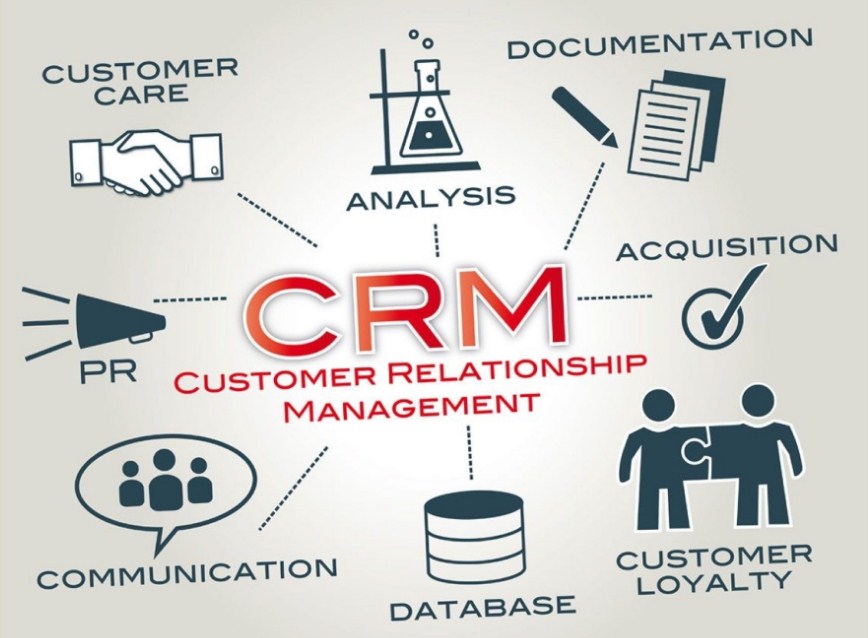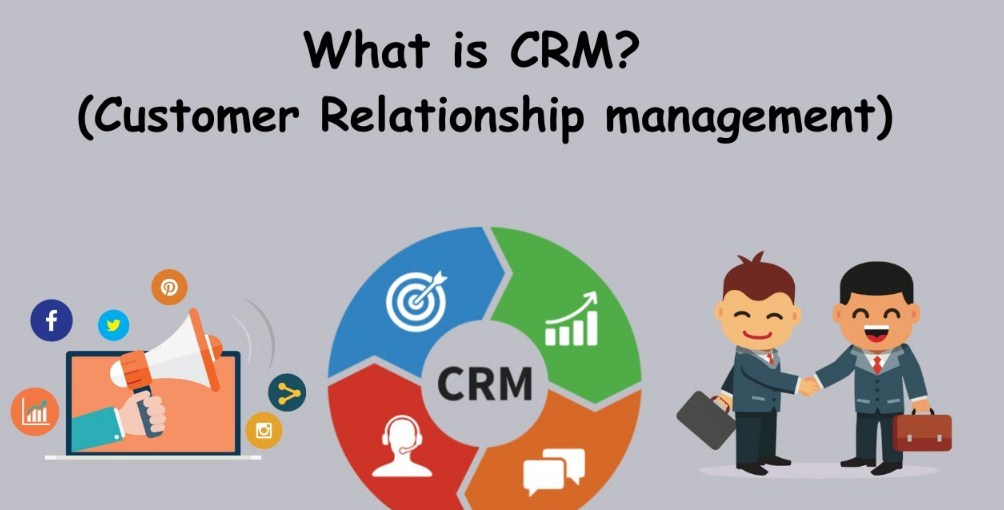Customer Relationship Management Strategy – In today’s competitive business landscape, a solid Customer Relationship Management (CRM) strategy is essential for success. 💡 A CRM strategy allows businesses to build strong relationships with their customers, improve customer satisfaction, and drive sales growth. If you’re looking to grow your business and streamline customer interactions, adopting an effective CRM strategy is key.

In this article, we’ll dive deep into CRM strategies, including their benefits, the top CRM products available, and how you can implement them for your business. Additionally, we’ll provide real-world examples, a comparison of CRM tools, and help you make an informed decision on which CRM is the best fit for your business needs.
What is a Customer Relationship Management Strategy?
A Customer Relationship Management (CRM) strategy is a comprehensive plan to manage and improve all interactions with your customers. It involves using CRM tools and techniques to build and nurture long-term relationships with customers, enhance customer experiences, and ultimately increase profits.
A well-implemented CRM strategy integrates various business functions such as sales, marketing, customer service, and support, all under one roof, enabling businesses to better understand and meet their customers’ needs.
Key Components of a CRM Strategy:
- Customer Data Collection: Gathering essential information about your customers, such as contact details, purchase history, preferences, etc.
- Segmentation: Grouping customers into segments based on certain criteria to offer personalized communication and services.
- Customer Engagement: Interacting with customers across multiple channels like email, social media, or phone calls.
- Customer Retention: Focusing on keeping existing customers happy through excellent service and engagement.
- Analytics and Reporting: Using data to make informed decisions on how to improve the customer experience and boost sales.
The Benefits of a CRM Strategy for Your Business
When you implement a strong CRM strategy, the benefits for your business are immense. Let’s take a look at how CRM can help your business thrive:
1. Improved Customer Relationships
CRM enables businesses to understand their customers better, providing personalized experiences and enhancing communication. This strengthens customer relationships and builds trust, which can lead to long-term loyalty.
2. Increased Sales
By automating certain aspects of sales and marketing, a CRM system helps sales teams stay organized, prioritize leads, and track opportunities more effectively. This ultimately increases conversions and boosts sales.
3. Better Customer Service
With a CRM, businesses can address customer issues faster and more efficiently. Support teams can easily track past interactions, which helps them provide more effective solutions to customers’ problems.
4. Data-Driven Insights
CRM systems provide valuable insights into customer behavior and preferences, enabling businesses to make smarter, data-driven decisions. This results in more targeted marketing campaigns and improved product offerings.
5. Streamlined Operations
A CRM system centralizes all customer data, making it easier for different teams (sales, marketing, support) to collaborate. This results in improved efficiency and less duplication of effort across the company.
Real-World Examples of CRM Tools and Products
Now, let’s dive into some of the top CRM products that businesses are using to implement their CRM strategies. Below are five examples of CRM tools that are widely used by companies of all sizes. We’ll also provide a detailed comparison of their features, pros, cons, prices, and more!

1. HubSpot CRM
Overview: HubSpot CRM is an all-in-one customer management platform that helps businesses attract, engage, and delight customers. It offers a wide range of tools for sales, marketing, and customer service.
Features:
- Contact management
- Sales pipeline tracking
- Marketing automation
- Reporting and analytics
- Integration with third-party tools
Pros:
- Free to use for basic features
- Easy to use with an intuitive interface
- Excellent customer support
- Scalable for businesses of all sizes
Cons:
- Limited customization options in the free plan
- Advanced features may require a paid plan
Price:
- Free plan available
- Paid plans start at $50/month
Best For:
Small to medium-sized businesses that need an easy-to-use, all-in-one CRM platform.
2. Salesforce CRM
Overview: Salesforce is one of the most popular CRM platforms, offering a wide array of tools for sales, customer service, and marketing automation. It’s ideal for businesses looking for advanced features and scalability.
Features:
- Advanced reporting and analytics
- Customizable dashboards
- AI-powered insights
- Integration with various apps
Pros:
- Highly customizable
- Scalable for businesses of any size
- Wide range of integrations with third-party tools
Cons:
- Steeper learning curve
- Can be expensive for smaller businesses
Price:
- Pricing starts at $25 per user/month for the Essentials plan
Best For:
Large enterprises and businesses with complex CRM needs.
3. Zoho CRM
Overview: Zoho CRM is a cloud-based platform that offers a full suite of features for sales, marketing, and customer support teams. It’s known for its affordability and flexibility.
Features:
- Lead and contact management
- Workflow automation
- AI-powered analytics
- Multi-channel communication
Pros:
- Affordable pricing plans
- User-friendly interface
- Good customer support
- Extensive customization options
Cons:
- Limited integrations with some third-party tools
- Some advanced features require the Enterprise plan
Price:
- Free plan for up to 3 users
- Paid plans start at $14/month per user
Best For:
Small businesses looking for an affordable and customizable CRM.
4. Pipedrive CRM
Overview: Pipedrive is a sales-focused CRM designed to help businesses manage their sales pipeline more efficiently. It’s known for its visual sales pipeline and user-friendly interface.
Features:
- Visual sales pipeline
- Lead tracking and reporting
- Email and calendar integration
- Activity reminders
Pros:
- Simple, intuitive interface
- Excellent for managing sales pipelines
- Great for small to mid-sized businesses
Cons:
- Limited marketing automation features
- Lacks advanced customer support tools
Price:
- Starts at $15/month per user
Best For:
Sales teams that need an easy-to-use tool to track leads and manage the sales pipeline.
5. Freshsales CRM
Overview: Freshsales by Freshworks is a powerful CRM tool with features tailored to sales teams. It includes email tracking, lead scoring, and reporting tools that help businesses engage customers effectively.
Features:
- Sales automation tools
- Lead scoring
- Email tracking
- Analytics and reporting
Pros:
- Easy to use with a clean interface
- Affordable pricing options
- Includes built-in phone and email features
Cons:
- Limited customization options
- Can be slow with large datasets
Price:
- Free plan available
- Paid plans start at $15/month per user
Best For:
Sales teams looking for an all-in-one CRM with communication tools built in.
CRM Tools Comparison Table
| CRM Tool | Features | Pros | Cons | Price | Best For |
|---|---|---|---|---|---|
| HubSpot CRM | Contact management, Sales tracking, Marketing automation | Free, Easy to use, Scalable | Limited customization in free plan | Free, Paid from $50/month | Small to Medium businesses |
| Salesforce | Advanced analytics, Customizable dashboards | Highly customizable, Scalable | Expensive, Steep learning curve | $25/month per user | Large enterprises, complex needs |
| Zoho CRM | Lead management, AI analytics, Multi-channel comm | Affordable, Flexible, Customizable | Limited integrations | Free, Paid from $14/month | Small businesses on a budget |
| Pipedrive | Sales pipeline management, Lead tracking | Simple, Visual, Easy to use | Lacks marketing automation | From $15/month | Sales teams, Small to Mid-sized businesses |
| Freshsales | Sales automation, Email tracking, Lead scoring | Affordable, Built-in communication tools | Slow with large data sets | Free, Paid from $15/month | Sales teams, SMEs |
How to Buy and Where to Buy CRM Tools
If you’re ready to implement a CRM strategy for your business, here’s how you can buy these CRM tools:
- HubSpot CRM: You can start for free and later upgrade to a paid plan here.
- Salesforce CRM: Purchase directly from Salesforce’s website.
- Zoho CRM: Visit Zoho’s website to purchase or start with their free plan.
- Pipedrive CRM: Buy Pipedrive directly from their website.
- Freshsales CRM: Purchase from Freshsales website.
FAQs ❓
1. What is a CRM strategy?
A CRM strategy focuses on managing customer relationships through data collection, segmentation, engagement, and service to improve satisfaction and business performance.
2. Can small businesses benefit from CRM tools?
Yes! Many CRM tools, like HubSpot and Zoho, offer free or affordable plans tailored to small businesses, helping them grow efficiently.
3. Are CRM tools hard to use?
Not necessarily! CRM tools like HubSpot and Freshsales are designed to be user-friendly, even for those without a technical background.
4. What are the most important features of a CRM?
Key features include contact management, sales tracking, marketing automation, reporting, and integration with other business tools.
5. How much does CRM software cost?
Prices vary depending on the tool and the plan. Most CRM tools offer free versions or affordable plans starting at $15-$50/month.
By following a well-planned CRM strategy and utilizing the right tools, you can improve customer relationships, streamline processes, and boost your business growth.
Read More >>>>
- Customer Relationship Management Software: The Ultimate Guide for 2025
- Customer-Centric CRM: Revolutionize Your Business with Tailored Customer Experiences